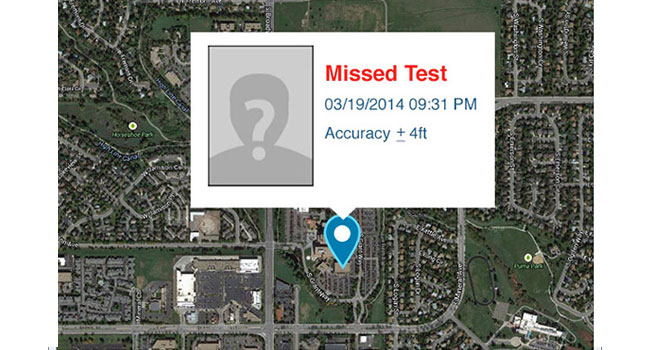What’s the first thing a remote breath client is likely to do if they drink?
Skip their test.
Missing a test—or several—is often the first line of defense for someone who has violated an order not to drink. It seems simple from their perspective because there are so many reasons OTHER than drinking that could cause them to miss a test. Forgot their unit at work. Can’t find it. Didn’t charge it.
Now, of course, the GPS location on a positive breath alcohol test is important. More often than not, though, agencies are chasing down missed test alerts far more often than failed tests. As we began designing our SCRAM Remote Breath device, time and again we heard that while lower-risk clients are generally compliant with their alcohol monitoring, agencies need more information about the clients who are NOT compliant, rather than trying to make best-guess decisions based on what clients say about why they missed a test.
Most remote alcohol testing devices provide no additional data for missed tests, other than posting “missed test.” And in fact, some can’t even conduct a test if the unit is outside cellular service. That’s why SCRAM Remote Breath was designed to give agencies a better idea of what’s really happening when tests are missed. Because test schedules are stored on-board the unit, Remote Breath wakes itself up and prompts the client at the scheduled time, even when it’s out of cell coverage. And SCRAM Remote Breath stores test results and a GPS location with taken and missed tests—a feature that’s proving valuable for making sense out of the most frequent alert type in remote breath testing: the missed test.
Why a GPS Location on a Missed Test Matters
So does that really translate into a benefit in the real-world of client management? Absolutely. In the last several months, our customers have shared stories where the GPS data gave them exactly what they needed to make more informed decisions about a client—especially on missed tests.
In one scenario, a client missed multiple tests and failed to respond to calls from the agency. But the GPS locations for the missed tests showed the unit’s location was at a truck stop in another state. After sending several on-demand test requests—which the client refused to take, and which continued to report the same GPS location—the agency contacted the police in that jurisdiction. Officers dispatched to the location found both the client and the Remote Breath unit. The absconded client was taken into custody and the agency recovered its device!
But this functionality isn’t just advantageous for catching your clients lying. The GPS locations can also verify a client’s story. For example, one client claimed she missed two tests because she had accidentally left her device in a company vehicle that was then checked out by another employee. By looking at the GPS locations for the missed tests, the agency was able to verify her story. The GPS data led to an appropriate warning, rather than a more severe violation, which could have derailed the client’s progress.
No, a client won’t always take the unit along when absconding, drinking, or leaving a jurisdiction. But knowing where the device is, whether clients take a test or not, is proving to be a very valuable advantage of the SCRAM Remote Breath system.
Get Advanced Remote Alcohol Monitoring
SCRAM Remote Breath is ideal for your low-risk/low-need alcohol clients. Contact us for more information about how SCRAM Remote Breath could integrate into your alcohol monitoring program.

